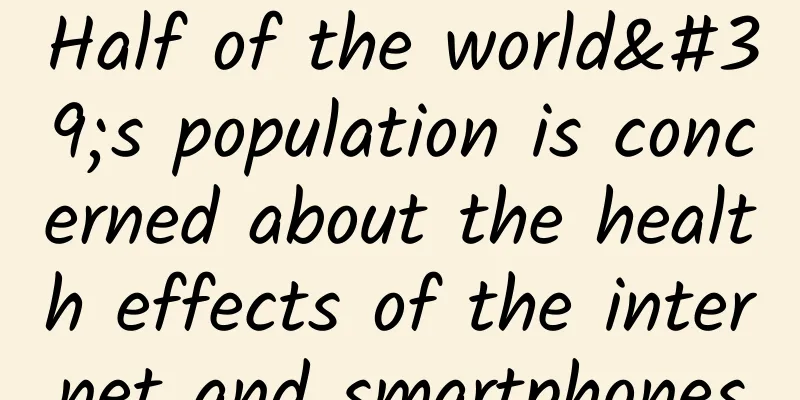Half of the world's population is concerned about the health effects of the internet and smartphones

|
In the post-epidemic era, technology's dominant role in the world is gradually increasing, and people's concerns about the dangers of excessive use of technology products are also increasing. Ithra, a cultural research institution based in Saudi Arabia, recently conducted a large-scale survey, and the results of the survey showed that nearly half (44%) of the respondents were concerned about the health effects of using the Internet and smartphones. At the event to launch the digital health program Sync, Ithra announced that it will hold a global summit on digital health in December every year. Ithra Cultural Research Center (Photo credit: brainstudy) “At Ithra, we are committed to the development of people, and we wanted to understand the cultural impact of our growing reliance on the internet and social media. The results were devastating: half of people believe that over-reliance on these platforms is harming their health. That’s why we’re launching Sync, a new initiative to raise awareness of digital health, support new research in collaboration with global institutions, and unite global thought leaders to find new ways to protect the public,” said Abdullah Al-Rashid, Director of Ithra’s Digital Health Initiative. Technology is a powerful force for goodIthra's survey shows that the vast majority (88%) of respondents worldwide believe that technology is a huge force for progress, and its main positive impacts include information acquisition, communication between people, etc. Many of these positive impacts have been highlighted during the COVID-19 pandemic, with 64% of people believing that technology has played a role in fighting the pandemic. But this has also caused almost everyone (91%) to spend more time online. Concerns are growingDespite these positive effects, Ithra’s findings also reveal concerns about the negative consequences of unrestricted use of these digital technologies: In terms of interpersonal relationships, 42% of respondents believe that technology has shortened the time they spend with their loved ones, and more than a third (37%) believe that technology has blurred the boundaries between work and social life. Children's education has also been affected, with 44% of parents admitting that they let their children use computers or smartphones without supervision. The proportion is higher in North America (60%) and Europe and Central Asia (58%). Half (44%) of respondents are concerned about the impact of technology on their health. Respondents in Sub-Saharan Africa and South Asia are most concerned, with 74% and 56% respectively worried about the negative impact of the internet on their health, compared with 27% in Europe and Central Asia. Younger generations are also experiencing more health problems than older generations due to increased use of electronic devices: 50% of Gen Z respondents said that using digital devices causes fatigue, poor sleep and headaches. Nearly half (48%) of respondents spend more time online than they would like, with 41% admitting they experience withdrawal symptoms when not able to use their devices. Lack of sleep is also a major issue, with 51% missing out on sleep due to screen time every week, and a quarter (24%) doing so every day. Advocating for digital healthRecognizing that these trends could have long-term impacts, Ithra has decided to launch a large-scale initiative, Sync, to support and promote efforts focused on digital health. Ithra will convene a symposium in December 2021 that will bring together global thought leaders, institutions, influencers and the public to raise awareness of digital health issues and inspire new thinking to protect the health of digital media users around the world. |
>>: WhatsApp will no longer support Android 4.0.4 and older devices from November 1
Recommend
Website promotion skills and methods, what are the steps for website promotion?
Many people say that SEO website optimization is ...
How can new media operators build content skills from 0 to 1?
In today's information age, content has gradu...
Event Promotion Plan | Key points on event design and traffic considerations!
To make a successful event, you often need three ...
Operation decoding, do you know these little things about operations?
It is easy to enter the industry but difficult to...
Daily maintenance of Baidu bidding promotion account, how to maintain a Baidu promotion account?
The main purpose of Baidu bidding is data analysi...
Do conscripts have preferential cards? What benefits do you enjoy? How to apply and what are the requirements?
The Veterans' Benefit Card is a red business ...
Can the “User Growth System” really retain users?
Xiao Y, a post-95s youth, receives many enthusias...
How to increase user growth rate? You have to learn to tease like this
The opposite of “our enemies know us better than ...
How do information flow ads dominate HeroAPPs such as Toutiao and Weibo?
Information flow advertising first appeared on th...
Community operation: How to operate a community from scratch?
1. Purpose Addressing current community needs: On...
[Stable Hang-up] World of Warcraft fully automatic hang-up brick-moving project, earn 50+ per day with a single number [fully automatic script]
[Stable Hang-up] World of Warcraft fully automati...
From variable declaration in C language to block syntax in Objective-C
[[164693]] In this article, we start with simple ...
5 dimensions to create true “native advertising”
People watch what they want to see, and sometimes...
Teach you step by step how to promote information flow videos!
Currently, the trend of online video advertising ...
Website SEO diagnosis and optimization plan case: The website went from “0” to “2” in one month!
Case Description: I made this website myself. Aft...









